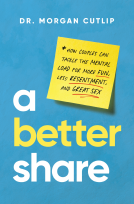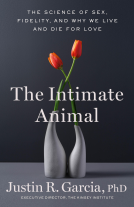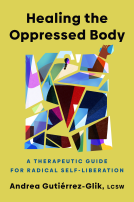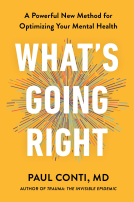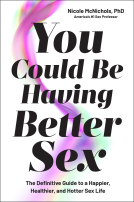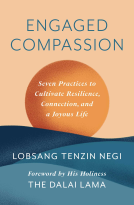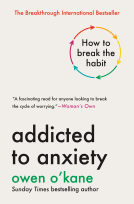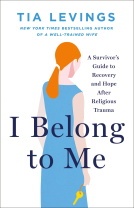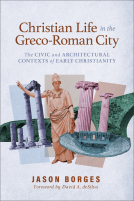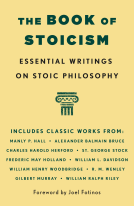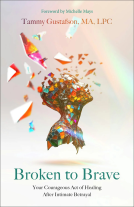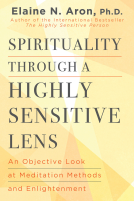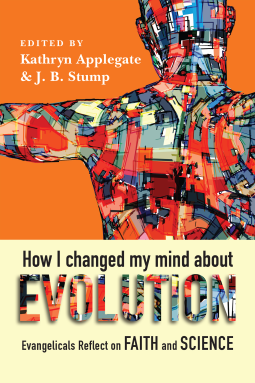
How I Changed My Mind About Evolution
Evangelicals Reflect on Faith and Science
by Kathryn Applegate; J.B. Stump
This title was previously available on NetGalley and is now archived.
Send NetGalley books directly to your Kindle or Kindle app
1
To read on a Kindle or Kindle app, please add kindle@netgalley.com as an approved email address to receive files in your Amazon account. Click here for step-by-step instructions.
2
Also find your Kindle email address within your Amazon account, and enter it here.
Pub Date Jun 13 2016 | Archive Date Jul 15 2016
InterVarsity Press | IVP Academic
Description
Perhaps no topic appears as potentially threatening to evangelicals as evolution. The very idea seems to exclude God from the creation the book of Genesis celebrates.
Yet many evangelicals have come to accept the conclusions of science while still holding to a vigorous belief in God and the Bible. How did they make this journey? How did they come to embrace both evolution and faith?
Here are stories from a community of people who love Jesus and honor the authority of the Bible, but who also agree with what science says about the cosmos, our planet and the life that so abundantly fills it.
Advance Praise
—Mark Labberton, president, professor of preaching, Fuller Theological Seminary, author of Called
"This book should be embraced as a treasure. In it you will find unique minds wrestling with how we got here and what our evolutionary history has to do with God, the Bible and the depth of our lived experience. I promise this book will challenge you on nearly every page as you discover new insight after new insight."
—Andrew Root, Olson Baalson Associate Professor of Youth and Family Ministry, Luther Seminary, principal leader, Science for Youth Ministry
Available Editions
| EDITION | Paperback |
| ISBN | 9780830852901 |
| PRICE | $16.00 (USD) |
Links
Average rating from 11 members
Featured Reviews
“How I Changed My Mind About Evolution: Evangelicals Reflect on Faith and Science,” is a tour de force and game changer. The book contains twenty-five chapters, each with a different author, who discuss their journey into accepting many of the tenets of evolution. Authors include: N. T. Wright, Scot McKnight, John Ortberg, James K. A. Smith, Tremper Longman III, Deborah Haarsma, Amos Yong, and other well-know and well-respected evangelical pastors, scholars, scientists, and philosophers. After reading the book, one will be reassured that a Christian can appreciate science and love God and His word at the same time. What I love most about the book is that although it will be a thorn in the side of uber-conservative creationists, it will bring comfort to those who quietly lean towards evolution and unfortunately feel shunned by their families and Christian communities. I will give it another 20 years before staunch creationists became an archaic vestige of old time religion, who will be remembered by Christians and the community at large with both embarrassment and compassion. This book will be a catalyst towards the above end.
 Conrade Y, Reviewer
Conrade Y, Reviewer
Is creation and the theory of evolution compatible? Is faith compatible with science? Can there be a middle ground that one can settle in? In examining the two, BioLogos and Inter-Varsity Press come together to publish a collection of articles from scholars, theologians, pastors, and evangelical thinkers who all had moved from a stubborn view against evolution toward a more moderate stance. Admittedly, the title gives me the impression that it is about people shifting their beliefs from an atheistic form of evolution to the theist view of creation. This is not so. In fact, this book presents a tricky shift to the middle ground that has cost at least two professors their jobs at conservative seminaries. At the heart of this book is the belief that Christianity and science are not incompatible. In fact, they can be reconciled at many levels. In other words, being a Christian does not necessitate one to be anti-evolution. In this book, we have twenty five stories and memoirs of people who have moved to a position of reconciliation, that evolution does not contradict creation. It is not some theological treatise or evidence against or for either evolution or creation. The mission of BioLogos is to "invite the church and the world to see the harmony between science and biblical faith as we present an evolutionary understanding of God’s creation."
Each contributor tells their own personal stories of why they had 'changed' their minds about evolution. James KA Smith speaks of a Dr Dave who inspired him to study 'creation science' and not to dismiss science away because of one's faith. Scot McKnight sees science as a way to think about the Bible as it does not necessarily forces its views on religions. Pastor Ken Fong believes that there is a way to hold both science and faith because all truth is God's truth. Biblical scholar Tremper Longman III insists that the Bible speaks more about the 'who' of creation while science gives us a clue on the how of creation. Stephen Ashley Blake is troubled by evangelicals' hostility toward science and believes that such attitudes threaten the faith of future generations. Sharing his conversion from agnosticism to faith in God, Francis Collins believes that we cannot argue our way into faith. We can believe without having to pit science against faith. Oliver Crisp gives a compelling article about faith, truth, and mystery, sharing with us that mysteries are not necessarily problems to be resolved. Richard Mouw recalls his experiences with fundamentalist groups and his wrestles with science and faith. He knows the unique difficult position when viewpoints clash, especially when influential donors hold a different theological position than his. Other contributors include Jim Stump, Daniel Harrell, Amos Yong, Dennis Venema, Justin Barrett, and even NT Wright from the United Kingdom.
The attitude that the contributors promote is: "Learn the best science. Talk to religious thinkers you trust. Give grace to everyone, remembering that our human attempts at knowing are finite and provisional." There is no need to straitjacket religion or science into their respective extremes in an unhelpful binary manner. In fact, they are not incompatible in the first place. There are good points raised by both parties that people can all learn together. Our faith should not be easily threatened by the conflict. In fact, science should be a way to facilitate our thinking about faith matters. In fact, our faith should be secure enough in Christ not to be easily derailed by champions of science.
The original number of contributors is nearly twice as many, and I think it is wise of the publisher to pare them down to 25. There is a lot of similarities in the articles that there is no need to double the size of this book in order to make the point. In fact, halfway through the book, I have that nagging feeling that the next article in line will parrot the same line of thinking, that is, science and faith are not necessarily incompatible. One can be both a person of faith and believes in evolutionary science. Perhaps, there should be articles that provide the other point of view. Instead of simply from anti-evolution to evolutionary science, have a few alternative opinions about change coming from the other direction. Have some kind of a respondents to each view. Reduce the number of similar minded contributors to include alternative views. Otherwise, the title of the book may create false impressions.
Rating: 4 stars of 5.
conrade
This book is provided to me courtesy of IVP Books and NetGalley in exchange for an honest review. All opinions offered above are mine unless otherwise stated or implied.
 Deborah M, Reviewer
Deborah M, Reviewer
I found this book very helpful in clarifying my opinion that God used evolution as a way to create life on earth.
Some years ago I read a very interesting book on this subject which gave me an interest in this topic and showed how each development was described in both evolution and the bible at the same step. This book developed that idea for me but would also be useful for the newcomer to this debatable topic and main contender in the battle between religion and science.
My only complaint is that they all seem to have come to the same conclusion although they have reached it from different perspectives.
Readers who liked this book also liked:
Justin R. Garcia
Health, Mind & Body, Nonfiction (Adult), Parenting, Families, Relationships
Nicole McNichols
Health, Mind & Body, Parenting, Families, Relationships, Self-Help
Elaine N. Aron
Health, Mind & Body, Nonfiction (Adult), Self-Help
